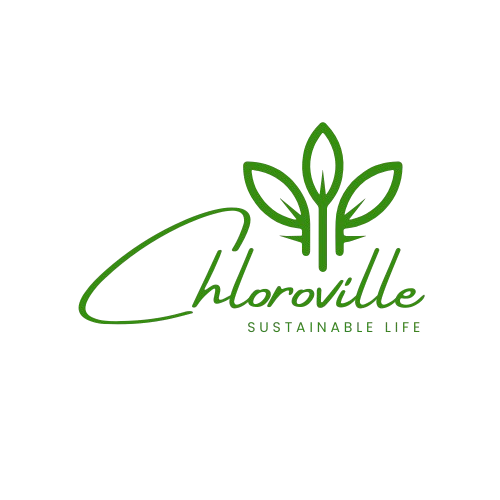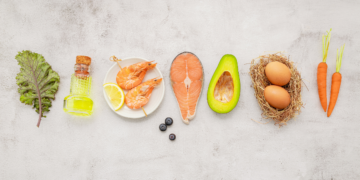Protein is often called the building block of life—and for good reason. It plays a crucial role in building, repairing, and maintaining muscle tissue. Whether you’re an athlete, bodybuilder, or someone focused on staying fit, understanding how protein supports muscle growth and recovery is essential for optimizing your fitness goals.
In this guide, we’ll explore the science behind protein, its role in muscle development, and how to incorporate it effectively into your diet.
What Is Protein and Why Is It Important?
Protein is a macronutrient composed of amino acids, which are the building blocks for various structures and processes in the body. It is critical for:
- Muscle Repair: Rebuilding damaged fibers after exercise.
- Muscle Growth: Supporting hypertrophy by providing essential amino acids.
- Overall Health: Contributing to enzyme production, immune function, and hormone regulation.
Learn more about protein’s functions: Harvard T.H. Chan School of Public Health
How Protein Supports Muscle Growth
1. Muscle Protein Synthesis (MPS)
Muscle protein synthesis is the process by which the body repairs and builds new muscle tissue. Protein intake, combined with resistance training, triggers MPS, leading to muscle growth over time.
- Key Mechanism: When you consume protein, amino acids are absorbed into the bloodstream and used to repair microtears caused by exercise.
- Optimal Timing: Consuming protein shortly after a workout maximizes MPS.
2. Prevention of Muscle Breakdown
During intense exercise, muscle tissue can break down as the body uses amino acids for energy. Adequate protein intake prevents excessive muscle loss by maintaining a positive protein balance.
The Role of Protein in Muscle Recovery
Recovery is just as important as training when it comes to building muscle. Protein aids recovery by:
- Reducing Muscle Soreness: Helps repair damaged muscle fibers, reducing delayed onset muscle soreness (DOMS).
- Accelerating Tissue Repair: Supplies the body with the necessary amino acids to heal microtears efficiently.
- Replenishing Energy Stores: Supports the recovery of glycogen stores when combined with carbohydrates.
How Much Protein Do You Need?
Protein needs vary based on factors like activity level, age, and body composition goals.
General Guidelines:
- Sedentary Adults: ~0.8 grams per kilogram of body weight.
- Active Individuals: 1.2–2.0 grams per kilogram of body weight.
- Strength Trainers or Athletes: 1.6–2.2 grams per kilogram of body weight.
Pro Tip: Spread your protein intake evenly across meals to optimize absorption and utilization.
Best Sources of Protein for Muscle Growth
1. Animal-Based Proteins
- Chicken Breast: High in lean protein with minimal fat.
- Eggs: Contain all nine essential amino acids.
- Fish (Salmon, Tuna): Rich in protein and omega-3 fatty acids.
- Greek Yogurt: Provides a high-protein snack with probiotics.
2. Plant-Based Proteins
- Lentils and Chickpeas: Packed with protein and fiber.
- Quinoa: A complete protein with essential amino acids.
- Tofu and Tempeh: Versatile options for vegetarians and vegans.
- Nuts and Seeds: Great for snacking or adding to meals.
3. Protein Supplements
Protein powders are a convenient way to meet your protein needs:
- Whey Protein: Quickly absorbed, ideal for post-workout recovery.
- Casein Protein: Slowly digested, perfect for nighttime recovery.
- Plant-Based Powders: Options like pea, hemp, or rice protein for those avoiding dairy.
Explore protein-rich recipes: Mayo Clinic
Timing Protein for Maximum Effectiveness
1. Pre-Workout Protein
- Why: Provides amino acids to support muscle repair during exercise.
- Examples: A small meal with protein and carbs (e.g., a banana with peanut butter).
2. Post-Workout Protein
- Why: Maximizes MPS and jumpstarts recovery.
- Ideal Timing: Within 30 minutes to 2 hours after exercise.
- Examples: A whey protein shake, chicken and rice, or eggs with whole-grain toast.
3. Before Bed
- Why: Supports muscle repair during sleep when the body’s recovery processes are active.
- Examples: Casein protein, cottage cheese, or Greek yogurt.
Protein and Other Nutrients for Muscle Recovery
Protein works best when paired with:
- Carbohydrates: Replenishes glycogen stores for energy and enhances protein’s muscle-building effects.
- Fats: Supports overall health and hormone production.
- Hydration: Ensures optimal cellular function during recovery.
Common Myths About Protein
Myth 1: High-Protein Diets Damage Kidneys
For healthy individuals, there is no evidence that high-protein diets harm kidney function.
Myth 2: You Need Protein Immediately After Exercise
While the anabolic window is important, protein consumed within 2 hours post-workout is sufficient for recovery.
Myth 3: Plant Proteins Are Inferior
While some plant proteins lack certain amino acids, combining sources (e.g., rice and beans) creates complete proteins.
Final Thoughts
Protein is a cornerstone of muscle growth and recovery, ensuring that your body has the necessary building blocks to repair and build muscle tissue. Whether you get your protein from animal, plant-based, or supplemental sources, the key is to tailor your intake to your fitness goals and activity level.
Start by incorporating protein-rich foods into each meal and focus on consistent, balanced nutrition to support your muscle-building journey.





















